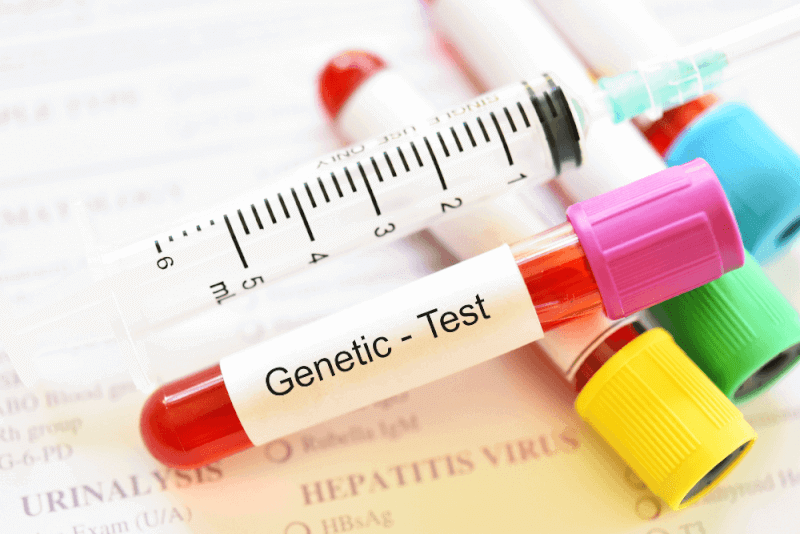Cushing’s syndrome is one of the rare diseases. The most characteristic symptom of the disease, which is 3 times more common in women than in men, is the rounding of the face, popularly known as the grandfather moon face.
What is Cushing’s Syndrome?
The hormone cortisol secreted by the adrenal glands is one of the vital hormones. Excess of this hormone, which is necessary for almost all tissues in the body, causes health problems in the body. One of these is Cushing’s syndrome.
Causes of Cushing’s Syndrome
The causes of Cushing’s disease vary according to the type of disease. The so-called exogenous Cushing’s syndrome is usually caused by excess cortisol given externally for any disease.
Endogenous Cushing’s Syndrome, another type of Cushing’s disease, is caused by excess cortisone secretion in the body. Excess cortisone secretion in the body is usually caused by benign tumors in the pituitary gland.
Symptoms of Cushing’s Syndrome
One of the distinctive symptoms seen in patients with Cushing’s syndrome is excessive weight gain in the trunk. There is no weight gain in the limbs of these patients. In addition to this condition called central obesity, the following symptoms are also seen in patients.
- Rounding of the face,
- Redness on the face,
- Weight gain between the shoulders and in the upper part,
- Fat accumulation between the shoulders,
- Thinning of the skin,
- Easy bruising,
- Red and purple cracks in the abdomen and armpit area,
- YIncreased acne on oily skin,
- High blood sugar,
- High cholesterol,
- Muscle weakness,
- Easy fracture of bones,
- Menstrual irregularity
- Increased hair growth,
- Erectile dysfunction,
- Depression
- Anxiety
- A state of nervousness,
- Hair loss
How is Cushing’s Syndrome Diagnosed?
In order to talk about Cushing’s syndrome, the level of cortisol in the blood must be determined. For this reason, blood, urine and saliva tests are taken from patients with suspected Cushing’s syndrome. In addition, imaging methods such as MRI and tomography are used to understand the cause of the disease.
Urine and Blood Tests
Cortisol levels in the body are measured in blood and urine. In order for the urine test to work for this purpose, patients need to collect urine for 24 hours. In addition, in order to understand the effect of cortisol-containing groups, physicians may ask patients to have tests before and after taking the medication.
Saliva Test
In a healthy person, cortisol levels in the body rise and fall throughout the day. Especially in the evening, cortisol levels are at their lowest. For this reason, Cushing’s syndrome can be easily diagnosed with a saliva sample taken from patients late at night.
CT and MRI Scans
Imaging methods are used to detect abnormalities that may cause Cushing’s syndrome. This is why the pituitary and adrenal glands are examined.
These tests also help to rule out other diseases. Because diseases such as alcoholism or polycystic ovary syndrome mimic Cushing’s syndrome.
Cushing’s Syndrome Treatment
If the type of disease is Exogenous Cushing’s syndrome, then the treatment of the disease requires discontinuation of the medications that cause this condition. However, if the patient is on long-term cortisol-containing medication, it is not correct to stop this medication suddenly. For this reason, medication should be stopped gradually and under the supervision of a doctor.
On the other hand, if the type of disease is Endogenous Cushing’s Syndrome, treatment should be directed at the cause of the excess cortisol. This usually requires surgical removal of pituitary tumors. If complete removal of the tumor is not possible, radiosurgery is used. Treatment options also include some medications that help reduce cortisol levels.
How Should Cushing’s Syndrome Patients Eat?
The diet of patients is important in the treatment of Cushing’s syndrome. Because excess cortisol in the body has an effect on blood sugar, fat distribution, cholesterol and blood pressure. Because of these effects, there are some points that patients with Cushing’s syndrome should pay particular attention to in their diet.
- In order to lose the excess weight caused by Cushing’s syndrome, low-calorie but nutritious foods should be consumed.
- To prevent bone fractures caused by Cushing’s syndrome, the diet should be enriched with calcium. It is also important for patients to get enough vitamin D to support bone health.
- In order to prevent high blood pressure in patients, sodium should be removed from the diet. For this reason, it is important that patients do not use salt in their meals and avoid processed foods.
- In addition, fatty foods should be avoided and foods rich in fiber should be included in the diet to prevent cholesterol from rising.
- Finally, in order to control carbohydrate metabolism, sugar consumption should be reduced.












